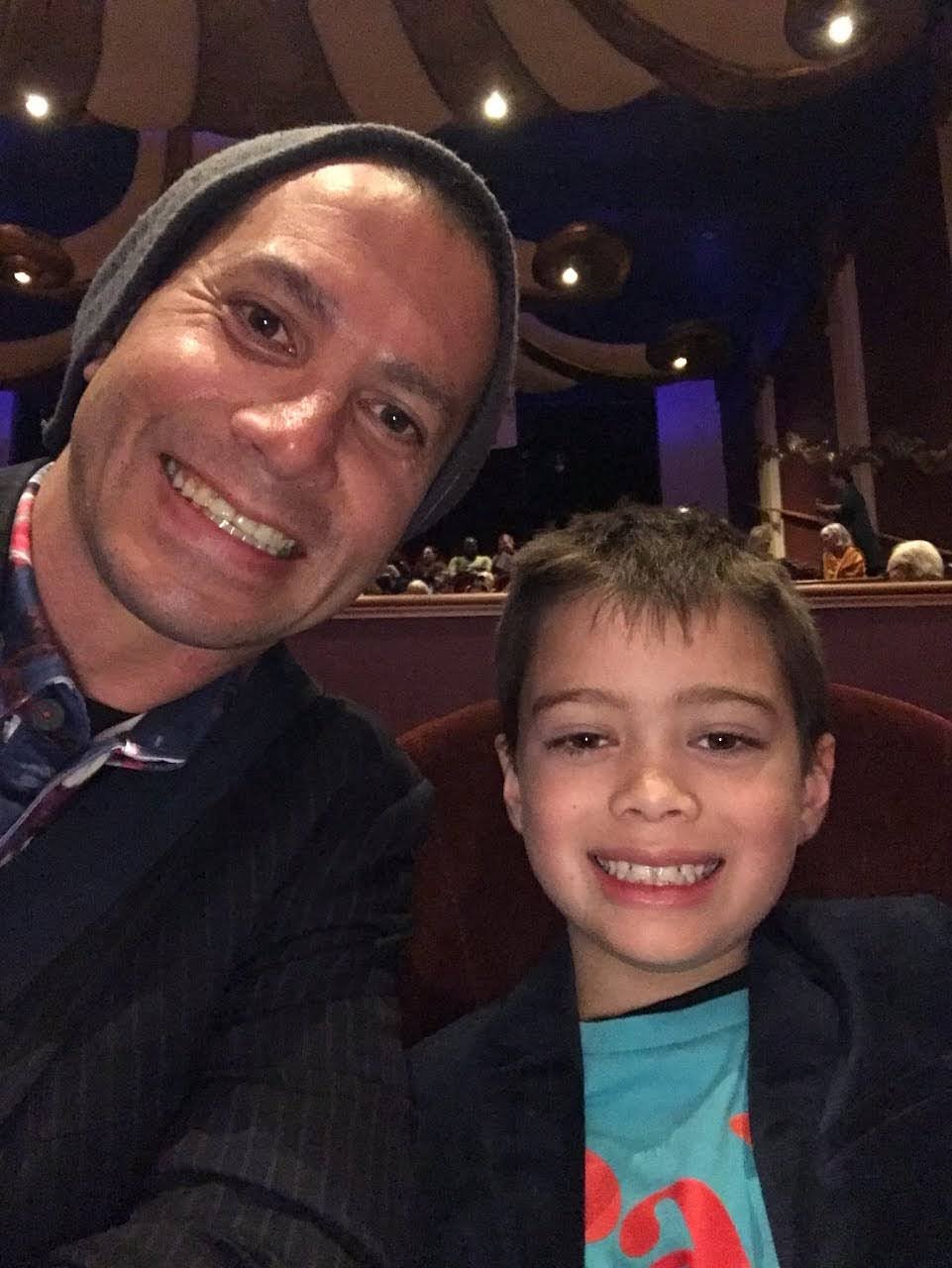Breaking a Generational Cycle: A Father's Journey
When speaking about his nine-year-old son, Sage, Steven radiates positive energy. With a bit of a chuckle and a wide smile he admits, “I’ve always thought of Sage as more of a best friend.”
The thing that first strikes you when you meet Steven is his introspective nature, one that very well hides growing up in an emotionally stunted home. “I grew up in a family that didn’t talk about their feelings.” With five brothers, fighting and aggression in the home was the norm, and a “boys don’t cry” attitude was adopted across generations. Behaviors like hugging and crying were shunned, and as a result, he says, he didn’t learn how to manage his emotions.
Struggling and determined to break this generational cycle, a flyer he received from his son’s school about Cope’s parenting classes caught his eye. Sage was seven years old at the time and dealing with emotional outbursts, tantrums, and general disobedience. Frustrated and impatient, Steven wondered, “How can I change him? Why isn’t he doing what I want him to do?” A class might help them better manage, he thought.
Although Steven assumed the class would be educational, he didn’t realize how interactive it would be. Each parent received weekly homework, which he quickly realized was an important element in learning and making change. “You are not only learning new strategies and tools but putting the learning into action.”
While remaining close, Steven says he has gained a better understanding of his son’s development and has learned to have more realistic expectations of Sage. Working with Cope’s Parent Educators, Steven learned new ways to communicate with Sage and encourage cooperation, minimizing undesirable behaviors like outbursts and tantrums.
With a tendency to communicate with Sage as if he were an adult, Steven also learned more age-appropriate ways to talk to his son, such as giving calm, simple, and clear directions. “I wasn’t setting him up for success. I wasn’t giving him the boundaries and routines that he needed to thrive.”
Bedtime, for example, was a struggle, and when Sage didn’t want to go to bed, he would pout, whine, and throw tantrums. During the class, Steven realized that Sage needed a routine that would give him time to prepare for bed and transition from wakefulness to sleep. “The classes helped me learn what my kid needs and how I can best support him.”
Steven has also learned how important it is to talk about feelings, and he is learning how to better express his emotions. Not understanding Sage’s emotions or expressing his own, he admits, was mentally exhausting. “The emotions are still there but without anywhere to go; they are bottled up. It takes a toll from generation to generation.”
Sage’s outbursts and tantrums were how he knew how to express his feelings, Steven realized, and he wondered, “How can he communicate if I don’t give him the tools?” Now Steven uses “mood cards” with Sage to talk about different feelings, and they are helping them both learn how to understand and express their emotions.
The course also gave Steven better insight into his own moods and habits. At the beginning and end of the course, parents complete a screening for anxiety, depression, and stress to identify these risk factors. “I realized I was always in a state of high stress, and that this wasn’t healthy.”
He could also see that the stress was impacting his parenting. “I realized I need to manage my stress so I can have more patience and continue working on my relationship with Sage. I didn’t want to pass my stress on to my son.”
Now Steven makes an effort to eat healthy and exercise. He’s working on better managing his thoughts and letting the small stuff go so that he can spend time and energy on the things that really matter. In working toward more balance, he is better able to take care of himself, so he has the energy to be a more present, patient, and engaged parent.
Steven says that one big takeaway is that his parenting struggles are incredibly common. “It was helpful to hear other parents struggling with the same things.” He was able to build relationships with the other parents taking the class, and being around other struggling parents helped him be honest about what he was going through with Sage.
Two years later, Steven has been deliberate in creating a safe and engaging environment for his son. The two stay busy doing fun and educational activities together, like going to museums and the symphony, as well as taking violin lessons together. Each day Steven asks himself, “How do I take action toward supporting my son’s growth and development and help him grow into a healthy, kind, smart adult?”
The changes Steven has made since coming to Cope have transformed his relationship with Sage. “If I didn’t come to Cope, I wouldn’t have as close of a relationship with my son as I do.” Sage feels safe talking about his feelings, their communication has improved, and they are able to resolve conflict with less yelling, tantrums, and outbursts. “I can’t teach my son if I don’t learn first. It’s my job to guide my son, so I do.”



